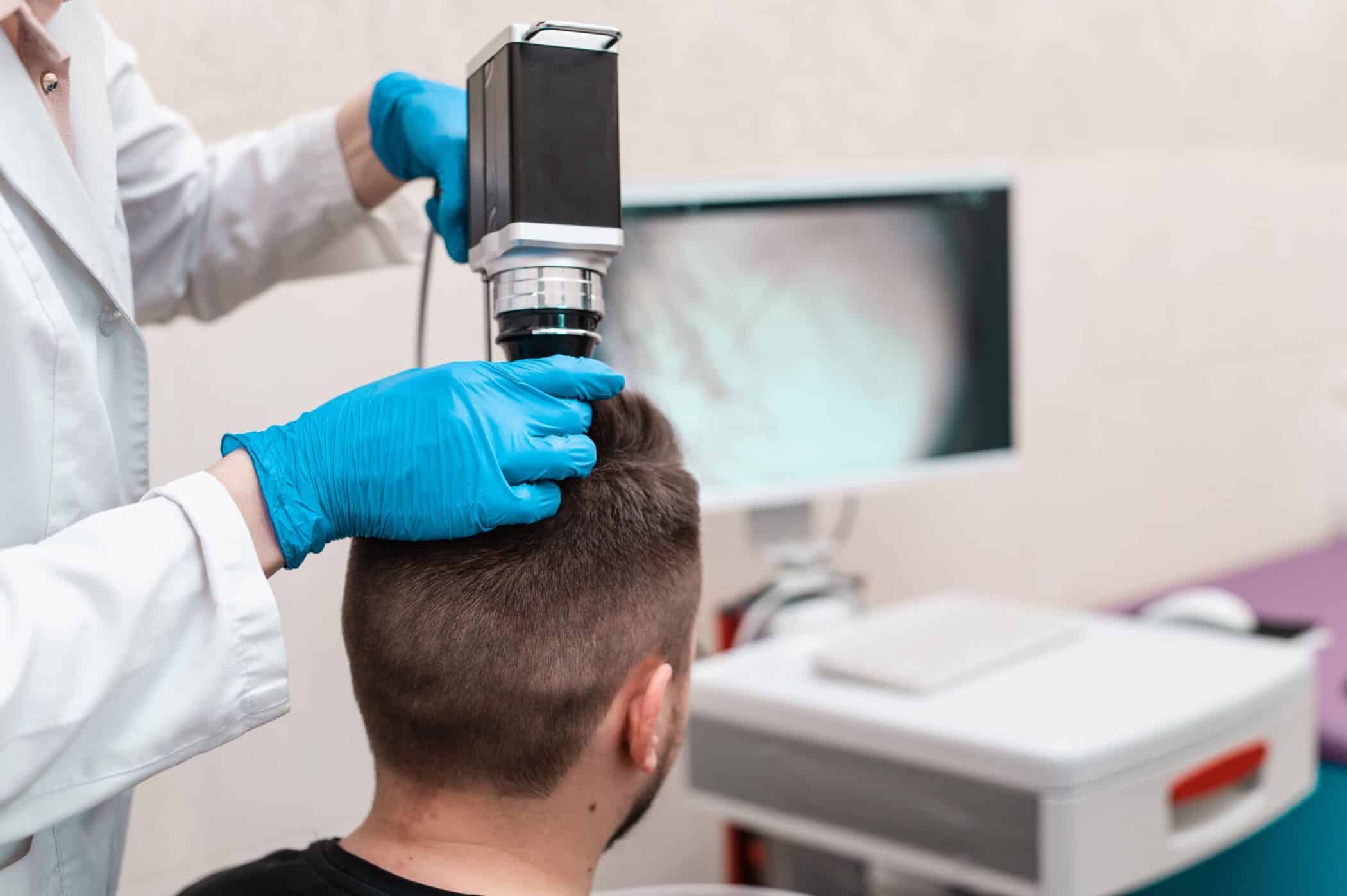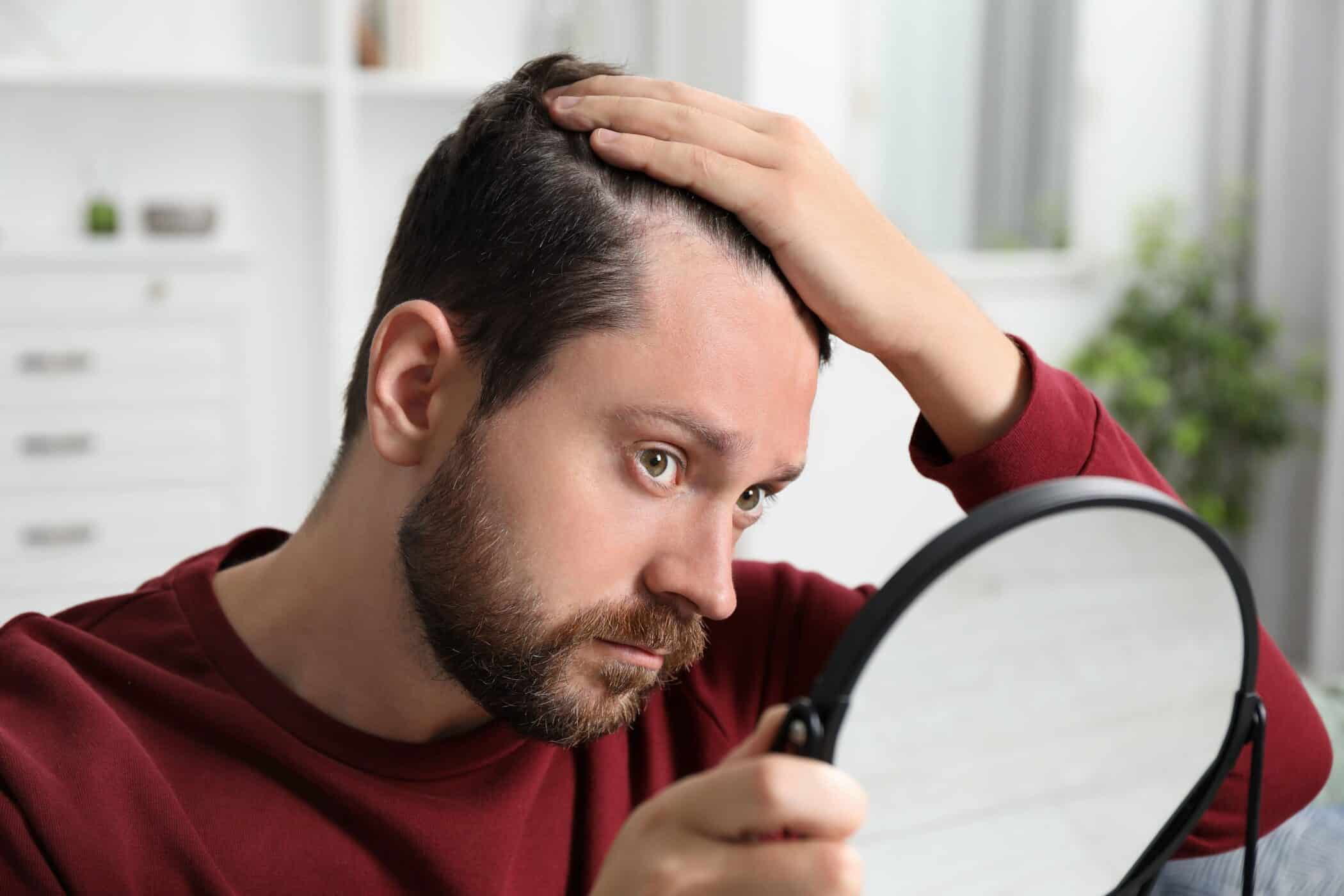
Zinc for Hair Growth – The Scientific Facts You Need to Know
Healthy hair is not just about shampoos and conditioners but also about minerals, such as zinc, that play a very crucial behind-the-scenes role in keeping your hair strong and your locks growing. If you, for the longest time, have been battling thinning hair or brittle strands, zinc for hair loss could be what has been missing. The body needs this nutrient to support one’s scalp and follicles internally, which it does to a point where one can actually notice, especially if you are deficient.
In this article, we’ll explore what science says about zinc’s role in hair growth, how to identify if you’re deficient, and the smartest way to integrate zinc into your wellness routine. Those needing a more personalized approach can get a specially designed hair care plan from Grow & Glow Clinic, Bangkok, which starts with nutritional assessments and goes on to advanced clinical treatments.

How Zinc Supports Hair Growth (Science-Based)
Zinc participates in several major factors related to healthy hair and therefore is a vital nutrient in maintaining the proper balance.
1. Keratin Production
Keratin is the main protein of hair; it is zinc that assists in the synthesis of this protein from within your body, ensuring new hair forms correctly with strength.
2. Follicle Repair and Maintenance
Healthy hair begins at the follicle. Zinc helps to maintain healthy follicles by assisting in tissue repair and preventing miniaturization of the follicles. Once they begin to shrink, thinning occurs.
3. Hormone Regulation
Zinc plays a role in the regulation of hormones, particularly DHT (dihydrotestosterone). This is the hormone most commonly associated with male and female pattern hair loss. When zinc is at a balanced level, it helps keep DHT activity more controlled and allows for steadier hair growth.
4. Cell Growth and Division
Zinc contributes to healthy cell reproduction, which is essential for forming new hair cells. Without enough zinc, your scalp may struggle to support new hair growth.
Signs You May Have a Zinc Deficiency
Noticing more hair on your pillow or in your brush than usual? You might want to consider your zinc intake. Common signs of deficiency include:
- Thinning hair or hair that grows slowly
- Brittle, weak strands
- Flaky, dry scalp
Zinc deficiency can also manifest in other ways, like fatigue, a weakened immune system, and slow wound healing. If these symptoms sound familiar, it’s important to consult with a medical professional and consider blood tests before jumping into supplementation.
The Right Way to Take Zinc Supplements
Who Needs It?
Supplements are normally prescribed to people who have been diagnosed with a zinc deficiency or for diets that are not getting enough zinc. Vegetarians, anyone with a gut condition, and even chronic stress can easily lead to deficiency.
How Much Zinc for Hair Loss?
Normal requirements for adults run between 8–11 mg daily. Over-supplementation creates imbalances that will do far more harm than good. Always stick to dosage guidelines.
Diet First
Whole foods offer a safe and effective option for getting zinc. You might consider trying things like:
- Oysters and lean red meats
- Pumpkin and sesame seeds
- Chickpeas, lentils, and quinoa
- Cashews and almonds
Supplements like zinc gluconate or citrate can be helpful, but they should only be used after dietary adjustments and under the guidance of a professional.
Benefits of Zinc Supplementation for Hair
For those who are deficient, zinc supplementation can lead to noticeable improvements:
- Increased Hair Thickness and Volume
Zinc promotes stronger strands and may help regrow lost density. - Reduced Hair Shedding
Balanced zinc levels help regulate hormones and inflammation, potentially reducing hair fall. - Better Scalp Health
Zinc supports sebum (natural oil) production, which keeps the scalp moisturized and protected.
Note: Zinc works best when combined with other nutrients such as biotin, iron, and vitamin D. A holistic nutritional approach enhances the impact on your hair.

Why Zinc Isn’t a Standalone Solution
While zinc for hair loss in females and males is scientifically supported, it’s rarely the only factor. Hair loss can stem from:
- Stress and sleep deprivation
- Hormonal imbalances
- Hereditary conditions (like male/female pattern baldness)
- Scalp inflammation or infections
That’s why treatment plans that combine dietary changes, topical treatments, and clinical interventions often yield the best results. At Grow & Glow Clinic, the team considers all possible root causes before recommending a solution.
Get Personalized Hair Care at Grow & Glow Clinic
At Grow & Glow Clinic, your journey to stronger, fuller hair starts with accurate diagnostics. Led by Dr. Patra Pinyopawasutthi, an internationally certified hair restoration specialist with over 3,000 successful cases, the clinic provides holistic hair restoration solutions backed by science.
Whether you’re experiencing mild thinning or more advanced hair loss, the clinic offers:
- Scalp and Nutrient Testing
Will define whether zinc or any other nutrient deficiency is associated with the health of your hair. - Advanced Clinical Treatments
- Options include PRP therapy, scalp mesotherapy, and a highly effective FUE hair transplant in Bangkok supported by state-of-the-art technology.
- Supplement Guidance Specific to Individual Needs
- The clinic does not promote unnecessary pills; rather, expert professionals design diet-and lifestyle-based plans wherein supplements are included only if required.
- Trusted by Thousands
- With more than 5,000 satisfied clients and a team with over 17 years of experience, Grow & Glow is a leader in responsible and effective hair care.
For those who are not yet ready for transplants, personalized treatments often deliver excellent results, especially when the part line is widening but still under 3 cm—common in early-stage female hair thinning.
If you want more direction, see how PRP and scalp detox cures can match zinc-based plans in our hair care treatments guide.
Zinc plays a major role in the maintenance of optimum hair health, right from the protection of keratin to the control of hormones that trigger loss. Still, it’s not a cure-all. If you suspect zinc deficiency, go to a healthcare provider who will confirm this through testing. Then, find a clinic that knows how nutrition, lifestyle, and science can all work together for lasting results.
With Grow & Glow Clinic, you get complete hair health solutions – supplements, clinical treatment, or everything in the middle. Let the panel of experts build a plan that suits you and returns you to being confident.


